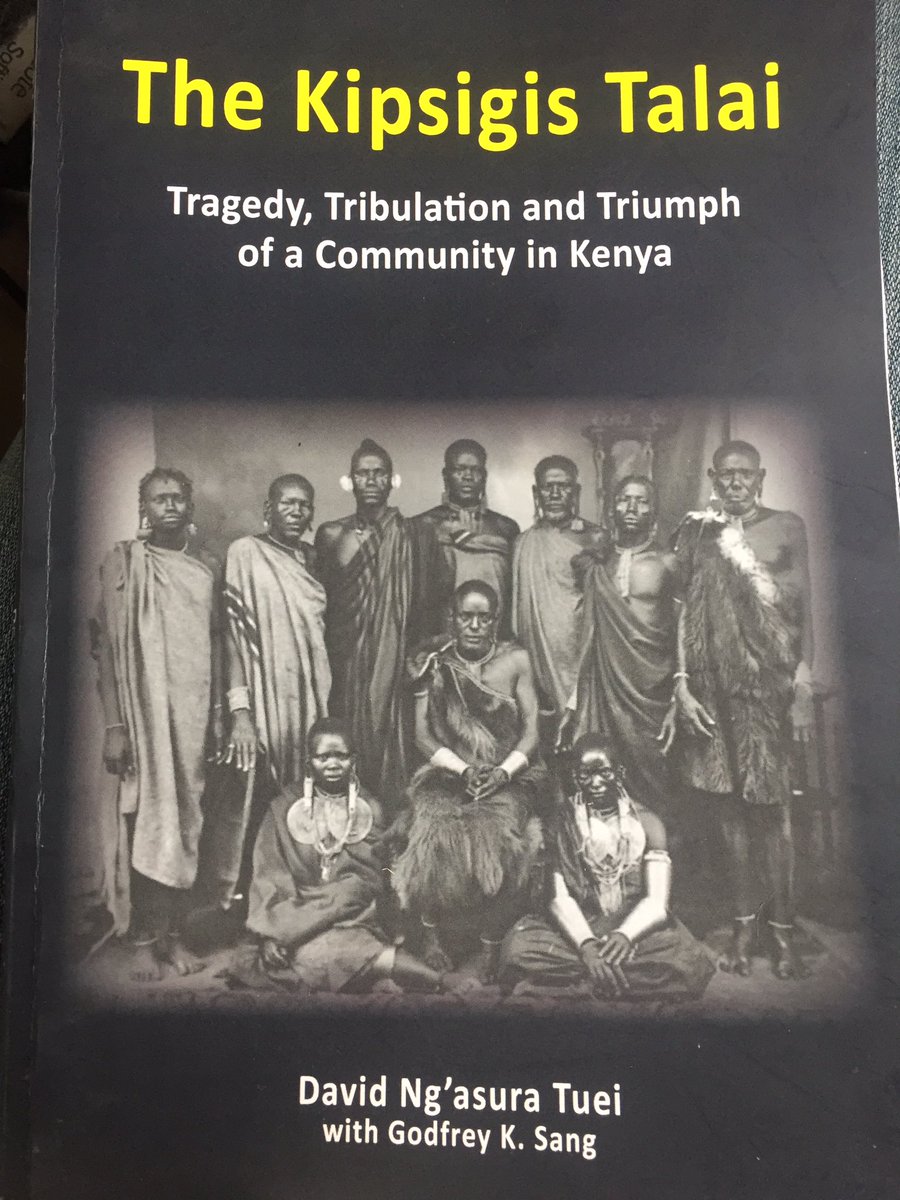The #Talai clan of the Kalenjin (Nandi, Kipsigis, Tugen and poss. Marakwet) have long been feared by the rest of the community. People don’t often talk about them. Members of the clan also don’t often reveal that detail. I recently discovered that this started with #colonialism.
The #Talai were the 19th century rulers of the group that was later called Kalenjin. We were taught in primary school history lessons about Kimnyolei and how he foretold the arrival of the railway ‘a long snake that puffs in its head that would cut through the land.’
He warned the Nandi (sub-tribe of the Kalenjin) about it. When British settlers arrived, Kimnyolei had been killed (by the Nandi) and his last son Koitalel arap Samoei was the new leader. He led the Nandi Resistance to colonial rule. It lasted more than a decade.
The fighters discovered the metal used to build the railway could be smelted and used to make arrow heads. They also uprooted the telegraph copper wires and used them to make ornaments. This is according to historian David Ng’asura Tuei.
Eventually, Koitalel arap Samoei was invited for peace talks by the colonial administration. But there was a different motive. Colonel Meneirtzhagen shot and killed him and his entire cabinet. I recently met Koitalel’s great grandson, David Sulo.
David said his great grandfather was holding a type of grass called kipkanduliet, which was a sign of peace when he was killed. At the Koitalel museum I learnt that Col. Maneirtzhagen later returned to apologize. His son (98-years-old now) handed back Koitalel’s leadership staff.
But after Koitalel was killed, the Kalenjin still consulted the Talai and the colonial administration got wind of it. The missionaries, says Mr. Tuei, helped send some of the early concerts to Christianity to spy on the #Talai elders. They were believed to have supernatural power
So the converts were taught that the Talai were evil. The religion they (and all Kalenjin) practiced was termed as witchcraft. That was a century ago. But even today, that’s what most Kalenjins believe. That’s why the Talai - even those who converted to Christianity - are feared.
The colonial administration also came up with the ‘Laibon Removal Ordinance,’ a law that was passed by the colonial parliament in Nairobi and assented to in London. It allowed them to evict and detain the #Talai. The Nandi Talai were moved to Kapsisiywa, where they live to date.
The Kipsigis #Talai (families of Koitalel’s older brothers) were moved with their livestock to Lambwe Valley in Gwassi near lake Victoria. It was infested with tse-tse flies and the Luo had moved away because of repeated outbreaks of Trypanosomiasis. The great trek was in 1934.
Their population was decimated by disease. The colonial administration carried out an annual census to monitor the numbers. Their livestock died too. Their young men and women couldn’t marry easily because they were detained.
Even those who were taken to Burma and elsewhere to fight the World Wars, were taken back to the detention centers on return to Kenya, according to Mr. Tuei. Survivors of the Gwassi detention finally moved back to Kericho at independence. But they became squatters.
The #Talai council of elders chairman, Rev. Canon James Baasi recently told me his clan was denied land after independence because it was said they were the Laibons or orkoik.
To this day, the #Talai remain stigmatized and shunned by the community they once ruled - the unknown/lesser known legacy of colonialism in Kenya.
Very long post - but it’s important to know and understand our history. Most Kenyans don’t know the story of the #Talai. Many Kalenjins fear them but they don’t know the origin of such attitudes. I didn’t know much about their history before I started researching for a story.
Here are two versions of the story we did:
Online: https://www.bbc.com/news/av/world-africa-53514916/legacy-of-kenyan-clan-branded-evil-by-colonialists
TV:">https://www.bbc.com/news/av/w... https://www.youtube.com/watch?v=NrDwkJ6d9UE">https://www.youtube.com/watch... (a slightly longer version hopefully coming soon. I’ll also post the radio piece once I have the link).
It was part of a global series titled #EchoesOfEmpire
Online: https://www.bbc.com/news/av/world-africa-53514916/legacy-of-kenyan-clan-branded-evil-by-colonialists
TV:">https://www.bbc.com/news/av/w... https://www.youtube.com/watch?v=NrDwkJ6d9UE">https://www.youtube.com/watch... (a slightly longer version hopefully coming soon. I’ll also post the radio piece once I have the link).
It was part of a global series titled #EchoesOfEmpire
Many thanks to historian #Ng’asuraTuei, the Talai elders in Kapsisiywa who welcomes us warmly and spoke eloquently about their plight; my uncle @HonFranklinBett who really educated me about our history and the A-team I’m lucky to work with @BBCJoeInwood and #PhilDavies
#EchoesOfEmpire is the brainchild of @fergalkeane47 - who continues to graciously mentor me. Special thanks also to @dhdfisher for your guidance and support.

 Read on Twitter
Read on Twitter


